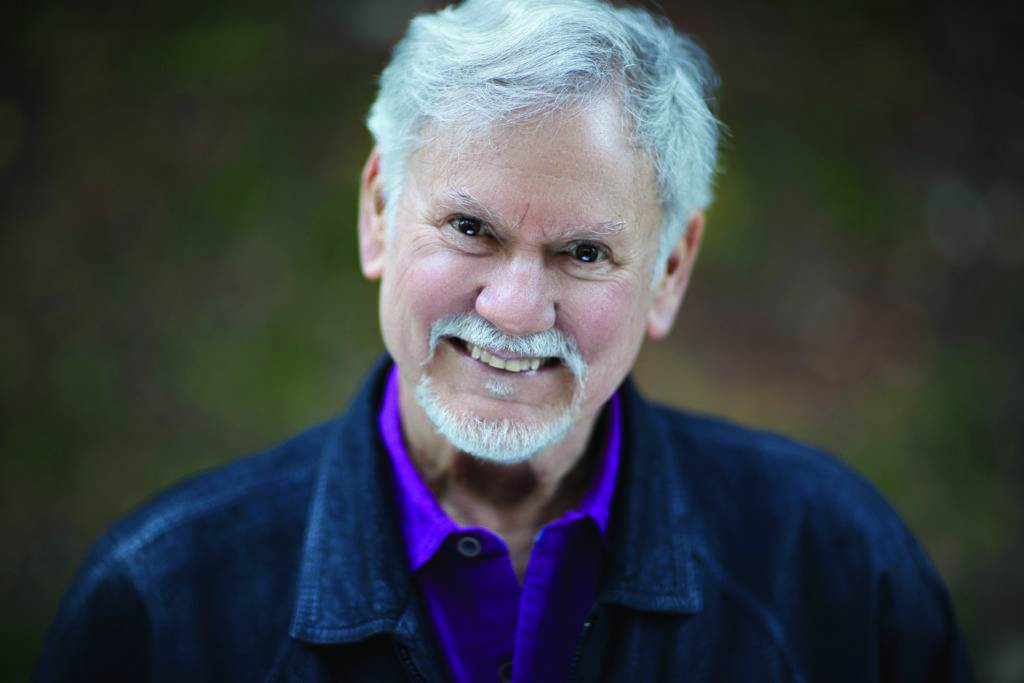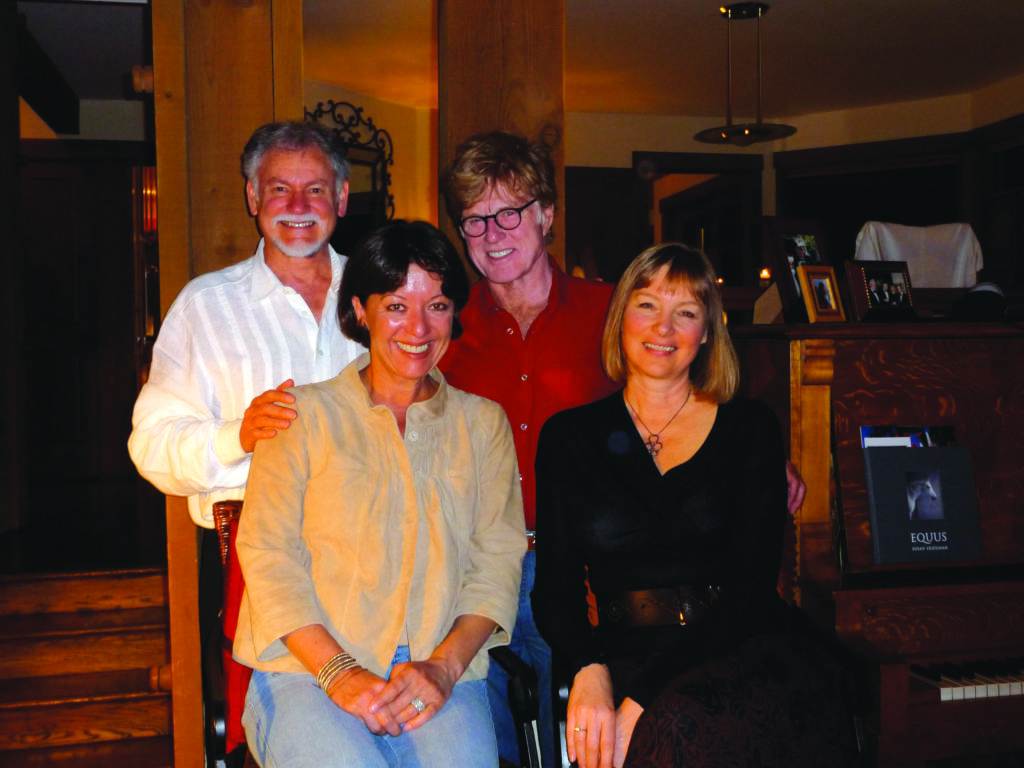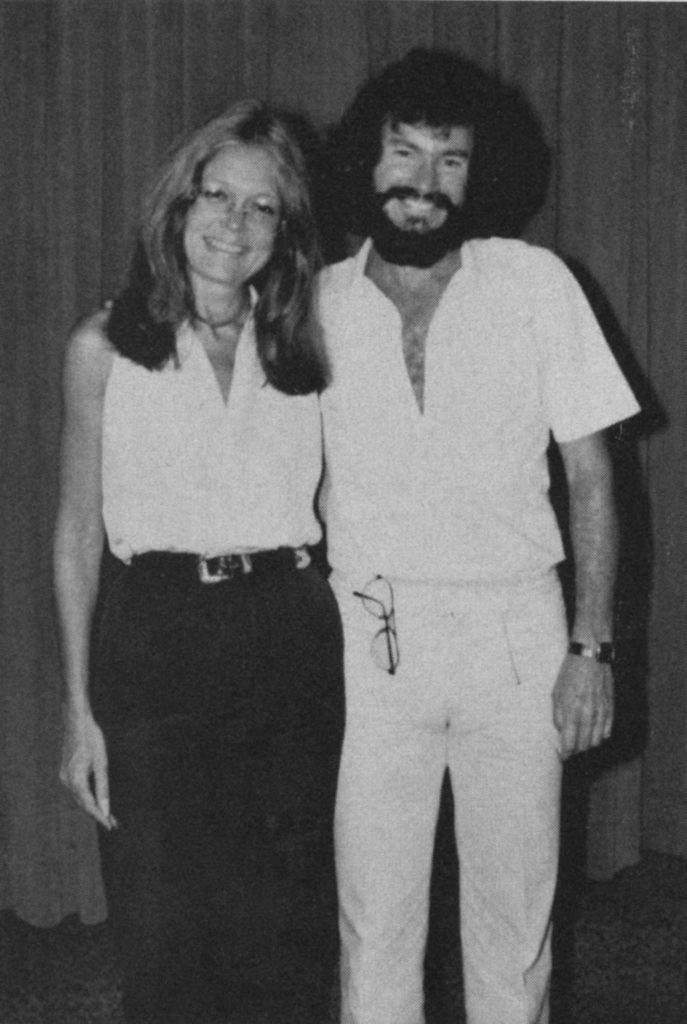The Father of the Men’s
Movement Weighs In
on the Boy Crisis
BY ROB SIDON
Warren Thomas Farrell was born in New Jersey in 1943 and came to prominence in the 1970s as the male champion of feminism. He worked side by side with the likes of Betty Friedan and Gloria Steinem, and served on the board of the National Organization for Women (NOW) in New York City. His views have since evolved, and while he is known as the father of the men’s movement, he now advocates for neither a men’s movement nor a women’s movement but instead for a “gender liberation movement” that frees both sexes from their past rigid roles.
The author of many successful books including The Myth of Male Power and The Liberated Man, Farrell’s focus over the last decade is summed up in his forthcoming book, The Boy Crisis: Why Our Boys Are Struggling and What We Can Do About It, co-authored with John Gray (Men Are from Mars, Women Are from Venus). Both writers live in Marin County.
Common Ground: You’re known as the father of the men’s movement. What is this movement?
Warren Farrell: It’s a movement that is trying to say several things. One is that for the last 50 years we’ve done a wonderful job expanding women’s options but not so much for expanding boys and men’s options. Often when I talk with a middle-class married couple and the woman is pregnant, the woman will ponder, “Do I wish to be a full-time mother? Or work full-time in the workplace, or do some combination of both?” Meanwhile her husband’s three options are: work full-time; work fulltime, and work full-time.
Another focus of the movement is to get men and boys to expand their emotional intelligence. We traditionally trained boys with heroic intelligence—to deny their feelings and to be disposable heroes that have short lives on the battlefield, so to speak. This tough heroic intelligence wreaks havoc on emotional intelligence. Boys and men need to develop the emotional capacity to get in touch with their feelings and cultivate emotional health. This will lead boys to have longer, more fulfilling lives and be better able to love our daughters.

In the ’60s you were at the vanguard as the one of the original men representing the women’s movement. How did that come about?
In the seventh grade, when I became class president, I said, “Mom, can I have a nice ironed shirt on the day I preside over the class meetings?” She said, “Absolutely,” and took out the ironing board. “Here’s how you iron your shirts.” She used to say, “I’m your mother, not your slave.” Also by the time the women’s movement surfaced, I had often heard my mother say that when she worked she felt she didn’t have to ask my dad for money “like a welfare recipient.” I saw that when my mom worked, even part-time, she was less prone to depression. She committed suicide when she was 48, so these memories resonated powerfully with me. Especially since the women’s movement’s principal focus then was on women’s right to work.
It must’ve been exciting.
Yes. I had relationships with leaders like Betty Friedan and Gloria Steinem and as the women’s movement made headlines the media treated me seriously. My encouragement of companies to develop flexible work had translation in the real world and my opinions were frequently published in the New York Times.
Today is it fair to say that the men’s movement is at odds with the women’s movement?
Unfortunately it is, but it should be the exact opposite. One of my efforts is to say, “We are all in the same family boat. Men and women share the same goals of raising healthier and happier children.” It’s our job to help both sexes understand each other.
What is the “boy crisis”?
It’s happening in all 63 developed countries: Boys are experiencing a failure to launch—a lack of motivation, a greater tendency to be withdrawn. Boys fall behind girls in every academic subject, especially the two that most predict success—reading and writing. They fall behind in physical, emotional, mental, and psychological health. Boys tend to withdraw into excessive video games, online porn, and drugs. The gray matter in their brains has begun to deteriorate as a result of having their dopamine being routinely stimulated by these risky activities. In The Boy Crisis I define part of the problem as a “purpose void.” To explain: In the old days boys used to have a clearer sense of purpose as they prepared themselves to be disposable in war and to earn recognition as heroes or warriors. While it’s good that we have less need for boys to be disposable in war, the shift has created a purpose void.
What are the root causes of the crisis?
I define ten significant causes but the most significant is fatherlessness. When there’s enough luxury for society to allow permission for divorce there’s greater likelihood that fathers will be minimally involved or not at all involved in child rearing. This results in children suffering from about 70 different areas of deprivation. Conversely, the flip side is also true—where fathers are significantly involved and giving good guidance, children benefit in about 70 different areas.
Fatherlessness is the most important cause with the biggest ripple effect. Testosterone, which is a powerful force, when not well channeled is the world’s most destructive force. ISIS recruits and the perpetrators of mass shootings are almost uniformly fatherless boys.
Doesn’t dad deprivation happen too in non-divorced households where Dad travels a lot to make bucks and is checked out about child rearing?
Yes, but usually not as much. The stability of knowing that Daddy is successfully off doing something and will be coming back helps. The Boy Crisis makes clear that boys do best amid stable families that have family dinner nights and where boys have a lot of dad contact doing roughhousing and game playing and teasing. Dads tend to be firmer in enforcing boundaries, saying things like, “You have to eat all your peas before you get ice cream.” Whereas Mom might settle and say, “Eat some of your peas.” I am speaking in generalities but oftentimes the greater desire of the mother is to protect the son from uncomfortable experiences. A boy at school might complain about a teacher and the dad’s response is more likely to be, “You need to learn to get along with people you don’t like.” A mom is more likely to want to ask the principal to put her child with a different teacher.
Is there any benefit to a woman hitching up with a man for the sake of her boy in order to have a male influence around the house?
While choosing among men who are good potential fathers or stepdads is certainly important, if she’s sleeping with somebody for the benefit of the children she isn’t being true to herself and that makes her a bit of a prostitute. That sacrifice weighs heavy.
What recommendations do you have for single mothers struggling to raise a balanced son?
Try to understand men’s different styles of loving. For example, a man is more likely to tease. Yes, stop teasing when it goes too far but understand how some teasing contributes to emotional intelligence. Or if your son’s male guide lets him climb a tree, yes, intervene if the boy’s life is at risk but if the risk is breaking a bone, weigh that against how it teaches him to differentiate between safe and unsafe risks. It’s better he learn such skills while he’s young and has the protection of a male guide. This type of exploring increases intelligence.

It seems parents of modern boys find themselves helpless against what I call the P words—the phone, the pot, the porn.
Substitute those P words for two other P words: postponed gratification and purpose. As with the example of “You can have ice cream only when you finish your peas,” the parent who enforces the boundary of requiring the peas to be finished teaches the child to postpone gratification—to focus on what is necessary to receive the desired reward. In turn this allows the child to accomplish his purpose. This garners respect from peers and less need to withdraw into pot or porn—which is basically access to a variety of (virtual) women without fear of rejection.
You grew up in the ’40s and ’50s. What kind of relationship did you have with your father?
A lot better than he had with his father, who never said that he loved him. Not that I felt unconditional approval. I had to actively earn my father’s approval, whether by doing my homework or delivering papers to earn money. I also earned his approval by showing integrity—like by not lying. My parents’ core message to me was You exist therefore you serve. It was never You exist therefore you deserve.
There’s a spectrum from the old-fashioned stoic hero provider dads to New Age dads who maybe feminize their boys. What’s your advice along those lines?
Just “hanging out” with your son gives him opportunities to share what’s bothering him at his pace. We call that feminizing, but for him to repress feelings is to cut off part of the man he is becoming. That’s emotional castration. However, feminizing in a negative sense is rescuing him by saying, “Hey, son, I don’t want you to ever have to worry about breaking your leg skiing again. If you want to quit, you can any time.”
In schools the teachers are overwhelmingly women. How does this affect boys?
For example, when a boy goes from an inner-city environment with minimal or no father involvement into a male-deprived elementary school, is it any wonder he is vulnerable to the first male—who is perhaps also a gang leader—who tells him that he can earn respect by joining the group or by selling drugs? The ratio of fatherlessness in African-American communities is 70 to 80%. We need approximately 70% male role models in the classroom to rebalance the energy—and not just in high school but starting in kindergarten, first, second, and third grades.
You say “Boys who hurt—hurt us.” What is behind that statement?
Three sociologists who did studies of ISIS recruits found to their surprise that they almost always came from broken families with minimal or no father involvement. So those boys were hurting—and they hurt society. It’s the same for school shooters and serial killers, like the one in Las Vegas. Boys who are hurt by dad deprivation often hurt us.
What policy decisions do you recommend?
For eight years under the Obama administration we had a White House Council on Women and Girls even though boys were falling farther and farther behind girls academically, socially, psychologically—their IQs decreasing, their sperm getting weaker, their propensity for depression and suicide increasing. A White House Council on Boys and Men would begin a national discussion that would become an international discussion.
What was John Gray’s role in coauthoring The Boy Crisis?
John did five phenomenal chapters on health therapies and non-drug solutions to ADHD. His research helps parents resolve the ADHD predicament—“Do I give my son drugs to stop the symptoms, even though those drugs are highly addictive?” The array of non-drug and life-enhancing therapies John presents will be a blessing to every parent with an ADHD child.
This being the love issue, could you tell the story about how you helped John Lennon?
We met in 1976 at a party for Ms. Magazine. I rarely watched TV, so when John approached me and asked, “Are you Warren Farrell?” I said “Yes” without any idea of who he was. He said, “I just want to tell you that you started a men’s group that I got involved with and it had a huge impact in my life.” I had trained men’s groups to run themselves and then left them. Since I had already left this men’s group by the time he joined, I asked, “How so?” He said, “Because I decided to take five years off to take care of my son.” He elaborated: “Apparently one of the questions you have all your men’s groups ask is ‘What’s the biggest hole in your heart?’ When it got to me I said, ‘The biggest hole in my heart is that I was so preoccupied with my work that I paid little attention to my first son.’ That led to getting a divorce and still having almost no contact with him.” He went on to say that at the time he came to the men’s group he was expecting a boy with his new wife.
“Then what happened?” I inquired. He said that the men in the group asked, “What would you do if you could do anything you wanted?” His response was, “I’d love to take off four or five years and raise him full-time.” He added, “Rather than laughing at me, the group encouraged me to talk with my wife. When I did she replied, ‘If you want to do that I think it would be wonderful for the boy.’”
Since his son was almost two, I asked John, “Was leaving your work and raising your son a good decision?” He didn’t hesitate. “It was by far the best decision of my life. I never knew what love was until I raised my son. I had often written about love, but now I felt I was love.”

At that moment, another guest at the party approached our table asking, “Can I have your autograph?” Since I’d just returned from doing a lot of TV on my book tour I reached for his pen. The guy clarified: “Er… actually I want his autograph.” Embarrassed, I asked the man I’d been talking to for the last hour, “Who are you? You must be well known.” He hesitatingly allowed “John….” And then he added “Lennon.” Without a TV, I felt proud for recognizing his name well enough to ask, “Are you a singer?” When he smiled “Yes,” I said, “What is the name of your group?” It was only when he said “the Beatles” that my death-from-embarrassment was complete.
Then I said to him, “Well, it’s a lot easier for you to take time off because you have money.” He disagreed. “In some ways yes, but in many ways no. I had far more contracts and people depending on me financially. Many fans were addicted to me and I was addicted to being addicted to.” He was talking about the phenomenon of What you own owns you. Here was a man with one of the most enviable careers in history claiming his best decision was his plan to give up five years to raise his son, concluding that he never really knew what love was until he raised Sean. On their deathbed nobody says, “I wish I’d spent more time at the office.” Almost everybody feels, “I wish I’d spent more time loving my family.”
All you need is love.
All you need is love.
Rob Sidon is editor-in-chief and publisher of Common Ground.